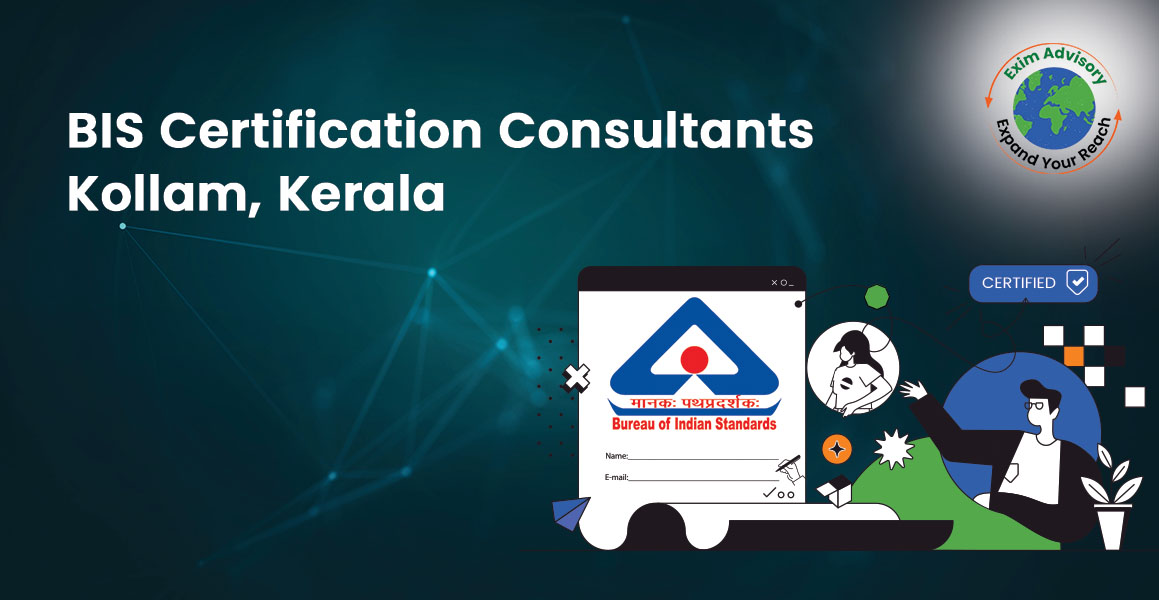
In Kollam, Kerala, ensuring that products adhere to stringent quality and safety standards is vital for businesses to secure consumer trust and meet national regulations. BIS certification verifies that your products conform to established quality benchmarks, making it an indispensable asset for manufacturers and service providers in the region. Partnering with BIS certification consultants in Kollam simplifies the certification process, ensuring smooth compliance and enhancing your brand’s reputation.
What Is BIS Certification?
The Bureau of Indian Standards (BIS) is the national authority responsible for establishing quality benchmarks, standardizing products, and certifying their safety across India. BIS certification is the process through which a product is thoroughly evaluated against these defined standards, ensuring its quality, safety, and reliability for consumers. When a product carries the BIS mark, it signifies that it has met rigorous quality norms—a critical requirement for both mandatory and voluntary certification schemes.
Key Areas of BIS Certification
Understanding the core components of BIS certification helps your business prepare effectively for compliance:
- Product Testing: Comprehensive testing of products to ensure they meet the prescribed Indian standards.
- Documentation Review: Detailed assessment of all necessary documents, including information on manufacturing processes and quality control systems.
- Factory Inspection: On-site evaluations to verify that production facilities adhere to BIS guidelines.
- Certification Issuance: Formal approval and issuance of the BIS license, permitting products to display the BIS mark.
- Surveillance: Ongoing monitoring and periodic audits to maintain continuous adherence to quality standards.
Benefits of BIS Certification
Securing BIS certification offers several important advantages for businesses in Kollam:
- Consumer Confidence: Products bearing the BIS mark build trust by assuring consumers of verified quality and safety.
- Market Access: Certification is often essential for certain product categories, enabling entry into broader markets.
- Enhanced Brand Image: Strengthens your brand’s credibility and reputation in a competitive marketplace.
- Competitive Edge: Differentiates your products from non-certified alternatives, potentially increasing market share.
- Regulatory Assurance: Ensures that your products consistently comply with national quality standards, thereby minimizing legal risks.
Industries Covered Under BIS Certification in Kollam, Kerala
Kollam’s diverse industrial landscape includes several sectors that significantly benefit from BIS certification:
- Marine and Seafood Processing: Ensuring that equipment and packaging used in the seafood industry meet strict safety and quality standards.
- Food and Agro Products: Standardizing quality measures for packaged foods and agricultural produce.
- Consumer Electronics: Certifying electronic devices and appliances to adhere to rigorous safety and performance benchmarks.
- Textiles and Handlooms: Verifying that fabrics and traditional handloom products maintain high quality and durability.
- Engineering and Industrial Goods: Certifying components and machinery parts used in various manufacturing processes to ensure optimal performance.
How Does BIS Certification Work?
The BIS certification process is designed to be systematic and transparent:
- Application Submission: Begin by submitting your application along with all required documents and product samples.
- Product Testing: Your product samples are tested in BIS-recognized laboratories to verify compliance with the standards.
- Factory Inspection: BIS officials conduct on-site inspections of your production facilities to assess adherence to guidelines.
- Certification Decision: Based on the test results and inspection reports, BIS grants the certification.
- Marking: Certified products are then authorized to display the BIS mark, indicating their compliance with established standards.
What Documents Are Required for BIS Certification?
A comprehensive documentation package is essential for a smooth certification process:
- Application Form: A fully completed form specific to your product category.
- Business Registration Proof: Legal documents such as GST registration or incorporation certificates.
- Product Information: Detailed specifications, user manuals, and technical documentation.
- Test Reports: Laboratory reports from BIS-recognized facilities confirming product compliance.
- Quality Control Records: Documentation outlining the quality management systems in place.
Fee Structure for BIS Certification
Understanding the fee components is crucial for effective budgeting:
- Application Fee: A fee payable at the time of application submission.
- Testing Fee: Charges incurred for the laboratory testing of product samples.
- Inspection Fee: Costs associated with on-site inspections by BIS officials.
- License Fee: A fee charged upon issuance of the BIS certification.
- Renewal Fee: Recurring charges for periodic renewal to maintain compliance.
Note: Specific fee amounts may vary based on the product category and other influencing factors.
Challenges and Solutions
During the BIS certification process, businesses may face several challenges that can be effectively managed:
- Complex Procedures: Navigating the detailed certification process can be overwhelming.
Solution: Engage experienced consultants to guide you through every step. - Documentation Errors: Incomplete or inaccurate documentation can lead to delays.
Solution: Prepare all necessary documents meticulously and review them carefully. - Maintaining Compliance: Consistently meeting quality standards over time can be demanding.
Solution: Implement robust quality management systems and conduct regular internal audits. - Financial Considerations: The costs associated with certification might be challenging for smaller enterprises.
Solution: Plan your budget carefully and explore available financial support or subsidy options.